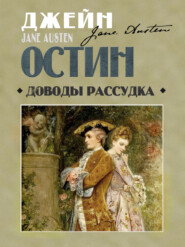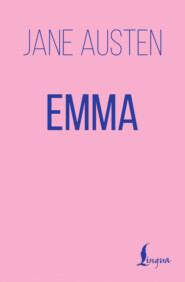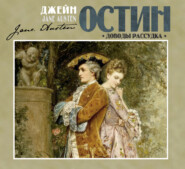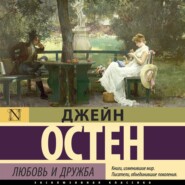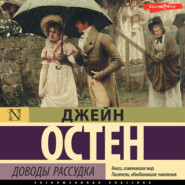По всем вопросам обращайтесь на: info@litportal.ru
(©) 2003-2024.
✖
Collins Classics
Автор
Год написания книги
2019
Настройки чтения
Размер шрифта
Высота строк
Поля
Lady Susan
Lady Susan was one of her earliest completed works, composed in around 1795, and the only one of her fully formed novels that was written in the epistolary form. It follows the exploits of the female rake, Lady Susan, who pursues men for their fortunes without scruples. That it was never published, Austen’s nephew later attributed to the fact that Austen herself considered it unworthy, but it is more likely that social strictures of the time would have made it unpopular or risqué. Through its epistolary form, it provides a unique insight into the thoughts and desires of its female protagonist, who seems incorrigible, but is nevertheless wonderfully entertaining. Likely modelled on Austen’s worldly cousin, Countess Eliza de Feuillide, Lady Susan is unlike any of Austen’s later heroines in her vivacious amorality, though we see some of her in the likes of Mary Crawford and even Elizabeth Bennet. The story of Lady Susan forms the basis of the cinematic work Love and Friendship (somewhat confusingly titled after a different story of Austen’s), starring Kate Beckinsale – the success of which is an indication, perhaps, that the work was simply ahead of its time.
The Watsons
Austen likely began writing The Watsons in 1804, by which time she had completed drafts of three of her major works – Sense and Sensibility, Pride and Prejudice and Northanger Abbey – but had not yet succeeded in publishing any. Once again, our knowledge of its composition process is coloured by the biographies written by her relatives. According to her nephew, the reason Austen abandoned the project was that she realized ‘the evil of having placed her heroine too low, in such a position of poverty and obscurity as, though not necessarily connected with vulgarity, has a sad tendency to degenerate into it’. The novel does indeed follow the lives of a family of much more diminished standing than was customary in Austen’s work, but she herself was quite familiar with financial difficulty, especially at this stage of her life. In 1805, Austen’s father died, leaving his two daughters in a state of sadness and significantly reduced standing. These personal circumstances are likely to have contributed to the fact that Austen abandoned the project. The revisions she made on the pages also give us an idea of the writing process – she seems to have struggled towards the end to conclude her narrative, with too many loose ends to tie up. She went on to use many elements from this unfinished novel in later works however, it is unique in representing the dire financial circumstances of unmarried women – a subject which is later handled more delicately through characters such as Jane Fairfax in Emma.
Sanditon – the final work
When Austen began work on Sanditon in January 1817, she was already suffering from the illness that would eventually lead to her untimely death. However, she was initially optimistic, and her buoyant and hopeful mood is reflected in the humour of the work. Yet on 18 March, she wrote the last words in her final novel, after two months’ effort. It seems ironic that her chosen topic was the life of invalids and hypochondriacs in a seaside resort, at a time when she herself was beset with illness. It shows that Austen continually viewed her own situation in a comedic light. It is also a return to the more overtly parodic tendencies of her early work, after more considered and nuanced novels such as Persuasion and Mansfield Park. The work was once again subject to posthumous editorialization by Austen’s nephew, and the novel in its entirety only appeared in print in 1925. Despite initial critical skepticism towards this later work, there is much to admire in it – Austen’s writing had become more self-assured, and she seems to have reveled in her lively use of language, as well as the incisive parody of human nature’s worst tendencies.
Sanditon, more than anything, shows that Austen was never content to continue a trajectory of writing, or to conform to contemporary norms – constantly looking ahead, and experimenting with her writing, we can only wonder where else her words would have taken her had she been granted the opportunity of a longer career.
SANDITON (#ulink_9a6a582b-c67c-52a8-b3ac-a0bc393d4287)
CHAPTER 1 (#ulink_73fa06ec-5747-57dd-9eaf-aca2d08ca249)
A gentleman and a lady travelling from Tunbridge towards that part of the Sussex coast which lies between Hastings and Eastbourne, being induced by business to quit the high road and attempt a very rough lane, were overturned in toiling up its long ascent, half rock, half sand. The accident happened just beyond the only gentleman’s house near the lane—a house which their driver, on being first required to take that direction, had conceived to be necessarily their object and had with most unwilling looks been constrained to pass by. He had grumbled and shaken his shoulders and pitied and cut his horses so sharply that he might have been open to the suspicion of overturning them on purpose (especially as the carriage was not his master’s own) if the road had not indisputably become worse than before, as soon as the premises of the said house were left behind—expressing with a most portentous countenance that, beyond it, no wheels but cart wheels could safely proceed. The severity of the fall was broken by their slow pace and the narrowness of the lane; and the gentleman having scrambled out and helped out his companion, they neither of them at first felt more than shaken and bruised. But the gentleman had, in the course of the extrication, sprained his foot—and soon becoming sensible of it, was obliged in a few moments to cut short both his remonstrances to the driver and his congratulations to his wife and himself—and sit down on the bank, unable to stand.
“There is something wrong here,” said he, putting his hand to his ankle. “But never mind, my dear—” looking up at her with a smile, “it could not have happened, you know, in a better place—Good out of evil. The very thing perhaps to be wished for. We shall soon get relief. There, I fancy, lies my cure—” pointing to the neat-looking end of a cottage, which was seen romantically situated among wood on a high eminence at some little distance—“Does not that promise to be the very place?”
His wife fervently hoped it was; but stood, terrified and anxious, neither able to do or suggest anything, and receiving her first real comfort from the sight of several persons now coming to their assistance. The accident had been discerned from a hayfield adjoining the house they had passed. And the persons who approached were a well-looking, hale, gentlemanlike man, of middle age, the proprietor of the place, who happened to be among his haymakers at the time, and three or four of the ablest of them summoned to attend their master—to say nothing of all the rest of the field—men, women and children, not very far off.
Mr. Heywood, such was the name of the said proprietor, advanced with a very civil salutation, much concern for the accident, some surprise at anybody’s attempting that road in a carriage, and ready offers of assistance. His courtesies were received with good breeding and gratitude, and while one or two of the men lent their help to the driver in getting the carriage upright again, the traveller said, “You are extremely obliging, sir, and I take you at your word. The injury to my leg is, I dare say, very trifling. But it is always best in these cases, you know, to have a surgeon’s opinion without loss of time; and as the road does not seem in a favourable state for my getting up to his house myself, I will thank you to send off one of these good people for the surgeon.”
“The surgeon, sir!” exclaimed Mr. Heywood. “I am afraid you will find no surgeon at hand here, but I dare say we shall do very well without him.”
“Nay sir, if he is not in the way, his partner will do just as well, or rather better. I would rather see his partner. Indeed I would prefer the attendance of his partner. One of these good people can be with him in three minutes, I am sure. I need not ask whether I see the house,” (looking towards the cottage) “for excepting your own, we have passed none in this place which can be the abode of a gentleman.”
Mr. Heywood looked very much astonished, and replied: “What, sir! Are you expecting to find a surgeon in that cottage? We have neither surgeon nor partner in the parish, I assure you.”
“Excuse me, sir,” replied the other. “I am sorry to have the appearance of contradicting you, but from the extent of the parish or some other cause you may not be aware of the fact. Stay. Can I be mistaken in the place? Am I not in Willingden? Is not this Willingden?”
“Yes, sir, this is certainly Willingden.”
“Then, sir, I can bring proof of your having a surgeon in the parish, whether you may know it or not. Here, sir,” (taking out his pocket book) “if you will do me the favor of casting your eye over these advertisements which I cut out myself from the Morning Post and the Kentish Gazette, only yesterday morning in London, I think you will be convinced that I am not speaking at random. You will find in it an advertisement of the dissolution of a partnership in the medical line in your own parish—extensive business, undeniable character respectable references wishing to form a separate establishment. You will find it at full length, sir,”—offering the two little oblong extracts.
“Sir,” said Mr. Heywood with a good humoured smile, “if you were to show me all the newspapers that are printed in one week throughout the kingdom, you would not persuade me of there being a surgeon in Willingden,” said Mr. Heywood with a good-humoured smile. “Having lived here ever since I was born, man and boy fifty-seven years, I think I must have known of such a person. At least I may venture to say that he has not much business. To be sure, if gentlemen were to be often attempting this lane in post-chaises, it might not be a bad speculation for a surgeon to get a house at the top of the hill. But as to that cottage, I can assure you, sir, that it is in fact, in spite of its spruce air at this distance, as indifferent a double tenement as any in the parish, and that my shepherd lives at one end and three old women at the other.”
He took the pieces of paper as he spoke, and, having looked them over, added, “I believe I can explain it, sir. Your mistake is in the place. There are two Willingdens in this country. And your advertisement refers to the other, which is Great Willingden or Willingden Abbots, and lies seven miles off on the other side of Battle—quite down in the Weald. And we, sir,” he added, speaking rather proudly, “are not in the Weald.”
“Not down in the weald, I am sure,” replied the traveller pleasantly. “It took us half an hour to climb your hill. Well, I dare say it is as you say and I have made an abominably stupid blunder—all done in a moment. The advertisements did not catch my eye till the last half hour of our being in town—when everything was in the hurry and confusion which always attend a short stay there. One is never able to complete anything in the way of business, you know, till the carriage is at the door. And, accordingly satisfying myself with a brief inquiry, and finding we were actually to pass within a mile or two of aWillingden, I sought no farther … My dear,” (to his wife) “I am very sorry to have brought you into this scrape. But do not be alarmed about my leg. It gives me no pain while I am quiet. And as soon as these good people have succeeded in setting the carriage to rights and turning the horses round, the best thing we can do will be to measure back our steps into the turnpike road and proceed to Hailsham, and so home, without attempting anything farther. Two hours take us home from Hailsham. And once at home, we have our remedy at hand, you know. A little of our own bracing sea air will soon set me on my feet again. Depend upon it, my dear, it is exactly a case for the sea. Saline air and immersion will be the very thing. My sensations tell me so already.”
In a most friendly manner Mr. Heywood here interposed, entreating them not to think of proceeding till the ankle had been examined and some refreshment taken, and very cordially pressing them to make use of his house for both purposes.
“We are always well stocked,” said he, “with all the common remedies for sprains and bruises. And I will answer for the pleasure it will give my wife and daughters to be of service to you in every way in their power.”
A twinge or two, in trying to move his foot, disposed the traveller to think rather more than he had done at first of the benefit of immediate assistance; and consulting his wife in the few words of “Well, my dear, I believe it will be better for us,” he turned again to Mr. Heywood, and said: “Before we accept your hospitality sir, and in order to do away with any unfavourable impression which the sort of wild-goose chase you find me in may have given rise to, allow me to tell you who we are. My name is Parker, Mr. Parker of Sanditon; this lady, my wife, Mrs. Parker. We are on our road home from London. My name perhaps, though I am by no means the first of my family holding landed property in the parish of Sanditon, may be unknown at this distance from the coast. But Sanditon itself—everybody has heard of Sanditon. The favourite for a young and rising bathing-place, certainly the favourite spot of all that are to be found along the coast of Sussex—the most favoured by nature, and promising to be the most chosen by man.”
“Yes, I have heard of Sanditon,” replied Mr. Heywood. “Every five years, one hears of some new place or other starting up by the sea and growing the fashion. How they can half of them be filled is the wonder! Where people can be found with money and time to go to them! Bad things for a country—sure to raise the price of provisions and make the poor good for nothing—as I dare say you find, sir.”
“Not at all, sir, not at all,” cried Mr. Parker eagerly. “Quite the contrary, I assure you. A common idea, but a mistaken one. It may apply to your large, overgrown places like Brighton or Worthing or Eastbourne but not to a small village like Sanditon, precluded by its size from experiencing any of the evils of civilization. While the growth of the place, the buildings, the nursery grounds, the demand for everything and the sure resort of the very best company whose regular, steady, private families of thorough gentility and character who are a blessing everywhere, excited the industry of the poor and diffuse comfort and improvement among them of every sort. No sir, I assure you, Sanditon is not a place—”
“I do not mean to take exception to any place in particular,” answered Mr. Heywood. “I only think our coast is too full of them altogether. But had we not better try to get you—”
“Our coast too full!” repeated Mr. Parker. “On that point perhaps we may not totally disagree. At least there are enough. Our coast is abundant enough. It demands no more. Everybody’s taste and everybody’s finances may be suited. And those good people who are trying to add to the number are, in my opinion, excessively absurd and must soon find themselves the dupes of their own fallacious calculations. Such a place as Sanditon, sir, I may say was wanted, was called for. Nature had marked it out, had spoken in most intelligible characters. The finest, purest sea breeze on the coast—acknowledged to be so—excellent bathing—fine hard sand—deep water ten yards from the shore—no mud—no weeds—no slimy rocks. Never was there a place more palpably designed by nature for the resort of the invalid—the very spot which thousands seemed in need of! The most desirable distance from London! One complete, measured mile nearer than Eastbourne. Only conceive, sir, the advantage of saving a whole mile in a long journey. But Brinshore, sir, which I dare say you have in your eye—the attempts of two or three speculating people about Brinshore this last year to raise that paltry hamlet lying as it does between a stagnant marsh, a bleak moor and the constant effluvia of a ridge of putrefying seaweed—can end in nothing but their own disappointment. What in the name of common sense is to recommend Brinshore? A most insalubrious air—roads proverbially detestable—water brackish beyond example—impossible to get a good dish of tea within three miles of the place. And as for the soil it is so cold and ungrateful that it can hardly be made to yield a cabbage. Depend upon it, sir, that this is a most faithful Brinshore—not in the smallest degree exaggerated—and if you have heard it differently spoken of—”
“Sir, I never heard it spoken of in my life before,” said Mr. Heywood. “I did not know there was such a place in the world.”
“You did not! There, my dear,” turning with exultation to his wife, “you see how it is. So much for the celebrity of Brinshore! This gentleman did not know there was such a place in the world. Why, in truth, sir, I fancy we may apply to Brinshore that line of the poet Cowper in his description of the religious cottager, as opposed to Voltaire—She, never heard of half a mile from home.”
“With all my heart, sir, apply any verses you like to it. But I want to see something applied to your leg. And I am sure by your lady’s countenance that she is quite of my opinion and thinks it a pity to lose any more time. And here come my girls to speak for themselves and their mother.” (Two or three genteel-looking young women, followed by as many maid servants, were now seen issuing from the house.) “I began to wonder the bustle should not have reached them. A thing of this kind soon makes a stir in a lonely place like ours. Now, sir, let us see how you can be best conveyed into the house.”
The young ladies approached and said everything that was proper to recommend their father’s offers, and in an unaffected manner calculated to make the strangers easy. And, as Mrs. Parker was exceedingly anxious for relief, and her husband by this time not much less disposed for it, a very few civil scruples were enough; especially as the carriage, being now set up, was discovered to have received such injury on the fallen side as to be unfit for present use. Mr. Parker was therefore carried into the house and his carriage wheeled off to a vacant barn.
CHAPTER 2 (#ulink_387e4511-9417-5954-a80e-d2d3c2761179)
The acquaintance, thus oddly begun, was neither short nor unimportant. For a whole fortnight the travellers were fixed at Willingden, Mr. Parker’s sprain proving too serious for him to move sooner. He had fallen into very good hands. The Heywoods were a thoroughly respectable family and every possible attention was paid, in the kindest and most unpretending manner, to both husband and wife. He was waited on and nursed, and she cheered and comforted with unremitting kindness; and as every office of hospitality and friendliness was received as it ought, as there was not more good will on one side than gratitude on the other, nor any deficiency of generally pleasant manners in either, they grew to like each other, in the course of that fortnight, exceedingly well.
Mr. Parker’s character and history were soon unfolded. All that he understood of himself, he readily told, for he was very open-hearted; and where he might be himself in the dark, his conversation was still giving information, to such of the Heywoods as could observe. By such he was perceived to be an enthusiast on the subject of Sanditon, a complete enthusiast. Sanditon—the success of Sanditon as a small, fashionable bathing place, was the object for which he seemed to live. A very few years ago, it had been a quiet village of no pretensions, but some natural advantages in its position and some accidental circumstances having suggested to himself, and the other principal landholder, the probability of its becoming a profitable speculation, they had engaged in it, and planned and built, and praised and puffed, and raised it to something of young renown; and Mr. Parker could now think of very little besides.
The facts which, in more direct communication, he laid before them were that he was about five and thirty, had been married—very happily married—seven years, and had four sweet children at home; that he was of a respectable family and easy, though not large, fortune; no profession—succeeding as eldest son to the property which two or three generations had been holding and accumulating before him—that he had two brothers and two sisters, all single and all independent—the eldest of the two former indeed, by collateral inheritance, quite as well provided for as himself.
His object in quitting the high road to hunt for an advertising surgeon was also plainly stated. It had not proceeded from any intention of spraining his ankle or doing himself any other injury for the good of such surgeon, nor (as Mr. Heywood had been apt to suppose) from any design of entering into partnership with him. It was merely in consequence of a wish to establish some medical man at Sanditon, which the nature of the advertisement induced him to expect to accomplish in Willingden. He was convinced that the advantage of a medical man at hand would very materially promote the rise and prosperity of the place, would in fact tend to bring a prodigious influx—nothing else was wanting. He had strong reason to believe that one family had been deterred last year from trying Sanditon on that account and probably very many more—and his own sisters, who were sad invalids and whom he was very anxious to get to Sanditon this summer, could hardly be expected to hazard themselves in a place where they could not have immediate medical advice.
Upon the whole, Mr. Parker was evidently an amiable family man, fond of wife, children, brothers and sisters, and generally kind-hearted; liberal, gentlemanlike, easy to please; of a sanguine turn of mind, with more imagination than judgement. And Mrs. Parker was as evidently a gentle, amiable, sweet-tempered woman, the properest wife in the world for a man of strong understanding but not of a capacity to supply the cooler reflection which her own husband sometimes needed; and so entirely waiting to be guided on every occasion that whether he was risking his fortune or spraining his ankle, she remained equally useless.
Sanditon was a second wife and four children to him, hardly less dear, and certainly more engrossing. He could talk of it forever. It had indeed the highest claims; not only those of birthplace, property and home; it was his mine, his lottery, his speculation and his hobby horse; his occupation, his hope and his futurity. He was extremely desirous of drawing his good friends at Willingden thither; and his endeavours in the cause were as grateful and disinterested as they were warm.
He wanted to secure the promise of a visit, to get as many of the family as his own house would contain, to follow him to Sanditon as soon as possible; and, healthy as they all undeniably were, foresaw that every one of them would be benefited by the sea. He held it indeed as certain that no person could be really well, no person (however upheld for the present by fortuitous aids of exercise and spirits in a semblance of health) could be really in a state of secure and permanent health without spending at least six weeks by the sea every year. The sea air and sea bathing together were nearly infallible, one or the other of them being a match for every disorder of the stomach, the lungs or the blood. They were anti-spasmodic, anti-pulmonary, anti-septic, anti-billious and anti-rheumatic. Nobody could catch cold by the sea; nobody wanted appetite by the sea; nobody wanted spirits; nobody wanted strength. Sea air was healing, softening, relaxing, fortifying and bracing seemingly just as was wanted sometimes one, sometimes the other. If the sea breeze failed, the sea-bath was the certain corrective; and where bathing disagreed, the sea air alone was evidently designed by nature for the cure.
His eloquence, however, could not prevail. Mr. and Mrs. Heywood never left home. Marrying early and having a very numerous family, their movements had long been limited to one small circle; and they were older in habits than in age. Excepting two journeys to London in the year to receive his dividends, Mr. Heywood went no farther than his feet or his well-tried old horse could carry him; and Mrs. Heywood’s adventurings were only now and then to visit her neighbours in the old coach which had been new when they married and fresh-lined on their eldest son’s coming of age ten years ago. They had a very pretty property; enough, had their family been of reasonable limits, to have allowed them a very gentlemanlike share of luxuries and change; enough for them to have indulged in a new carriage and better roads, an occasional month at Tunbridge Wells, and symptoms of the gout and a winter at Bath. But the maintenance, education and fitting out of fourteen children demanded a very quiet, settled, careful course of life, and obliged them to be stationary and healthy at Willingden.
What prudence had at first enjoined was now rendered pleasant by habit. They never left home and they had gratification in saying so. But very far from wishing their children to do the same, they were glad to promote their getting out into the world as much as possible. They stayed at home that their children might get out; and, while making that home extremely comfortable, welcomed every change from it which could give useful connections or respectable acquaintance to sons or daughters. When Mr. and Mrs. Parker, therefore, ceased from soliciting a family visit and bounded their views to carrying back one daughter with them, no difficulties were started. It was general pleasure and consent.
Their invitation was to Miss Charlotte Heywood, a very pleasing young woman of two and twenty, the eldest of the daughters at home and the one who, under her mother’s directions, had been particularly useful and obliging to them; who had attended them most and knew them best. Charlotte was to go, with excellent health, to bathe and be better if she could; to receive every possible pleasure which Sanditon could be made to supply by the gratitude of those she went with; and to buy new parasols, new gloves and new brooches for her sisters and herself at the library, which Mr. Parker was anxiously wishing to support.
All that Mr. Heywood himself could be persuaded to promise was that he would send everyone to Sanditon who asked his advice, and that nothing should ever induce him (as far as the future could be answered for) to spend even five shilling at Brinshore.
CHAPTER 3 (#ulink_cf53a8fc-9906-518a-a835-38e82f80918d)
Every neighbourhood should have a great lady. The great lady of Sanditon was Lady Denham; and in their journey from Willingden to the coast, Mr. Parker gave Charlotte a more detailed account of her than had been called for before. She had been necessarily often mentioned at Willingden for being his colleague in speculation. Sanditon itself could not be talked of long without the introduction of Lady Denham. That she was a very rich old lady, who had buried two husbands, who knew the value of money, and was very much looked up to and had a poor cousin living with her, were facts already known; but some further particulars of her history and her character served to lighten the tediousness of a long hill, or a heavy bit of road, and to give the visiting young lady a suitable knowledge of the person with whom she might now expect to be daily associating.
Lady Denham had been a rich Miss Brereton, born to wealth but not to education. Her first husband had been a Mr. Hollis, a man of considerable property in the country, of which a large share of the parish of Sanditon, with manor and mansion house, made a part. He had been an elderly man when she married him, her own age about thirty. Her motives for such a match could be little understood at the distance of forty years, but she had so well nursed and pleased Mr. Hollis that at his death he left her everything—all his estates, and all at her disposal. After a widowhood of some years, she had been induced to marry again. The late Sir Harry Denham, of Denham Park in the neighbourhood of Sanditon, had succeeded in removing her and her large income to his own domains, but he could not succeed in the views of permanently enriching his family which were attributed to him. She had been too wary to put anything out of her own power and when, on Sir Harry’s decease, she returned again to her own house at Sanditon, she was said to have made this boast to a friend: “that though she had got nothing but her title from the family, still she had given nothing for it.”
For the title, it was to be supposed, she had married; and Mr. Parker acknowledged there being just such a degree of value for it apparent now, as to give her conduct that natural explanation. “There is at times,” said he, “a little self-importance but it is not offensive and there are moments, there are points, when her love of money is carried greatly too far. But she is a good-natured woman, a very good-natured woman—a very obliging, friendly neighbour; a cheerful, independent, valuable character and her faults may be entirely imputed to her want of education. She has good natural sense, but quite uncultivated. She has a fine active mind as well as a fine healthy frame for a woman of seventy, and enters into the improvement of Sanditon with a spirit truly admirable. Though now and then, a littleness will appear. She cannot look forward quite as I would have her and takes alarm at a trifling present expense without considering what returns it will make her in a year or two. That is—awe thinkdifferently, we now and then see things differently, Miss Heywood. Those who tell their own story, you know, must be listened to with caution. When you see us in contact, you will judge for yourself.”
Lady Denham was indeed a great lady beyond the common wants of society, for she had many thousands a year to bequeath, and three distinct sets of people to be courted by: her own relations, who might very reasonably wish for her original thirty thousand pounds among them; the legal heirs of Mr. Hollis, who must hope to be more indebted to her sense of justice than he had allowed them to be to his;and those members of the Denham family whom her second husband had hoped to make a good bargain for. By all of these, or by branches of them, she had no doubt been long, and still continued to be, well attacked; and of these three divisions, Mr. Parker did not hesitate to say that Mr. Hollis’s kindred were the least in favour and Sir Harry Denham’s the most. The former, he believed, had done themselves irremediable harm by expressions of very unwise and unjustifiable resentment at the time of Mr. Hollis’s death; the latter had the advantage of being the remnant of a connection which she certainly valued, of having been known to her from their childhood and of being always at hand to preserve their interest by reasonable attention. Sir Edward, the present baronet, nephew to Sir Harry, resided constantly at Denham Park; and Mr. Parker had little doubt that he and his sister, Miss Denham, who lived with him, would be principally remembered in her will. He sincerely hoped it. Miss Denham had a very small provision; and her brother was a poor man for his rank in society.






